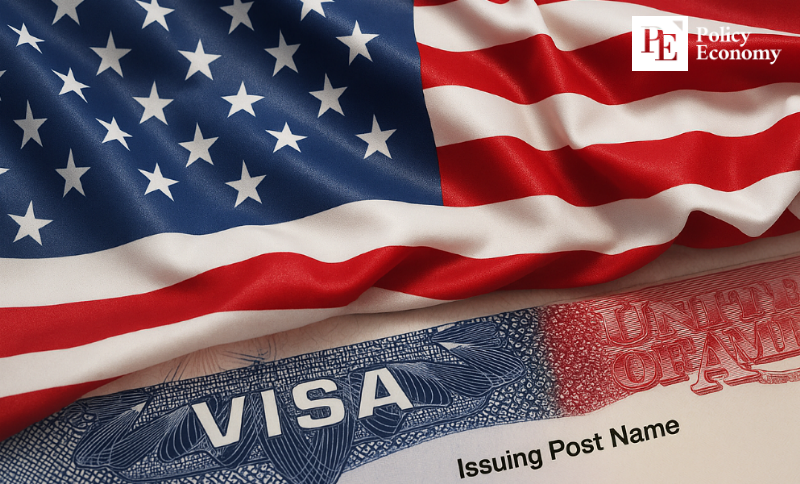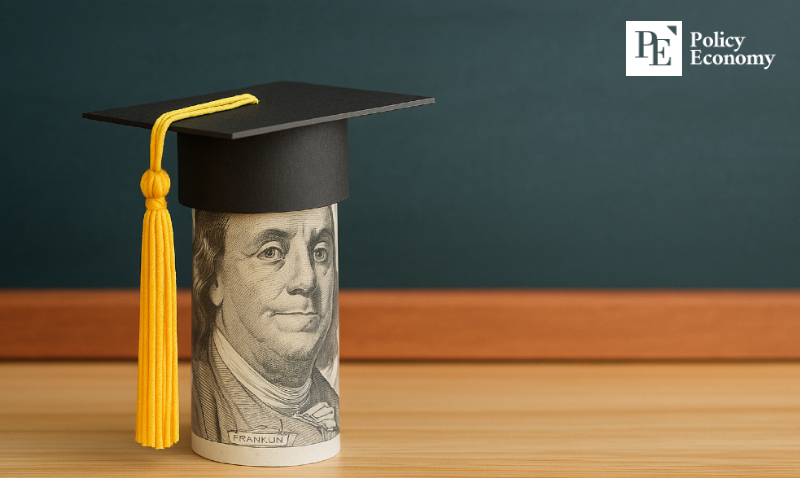6,000 U.S. Student Visas Revoked This Year Alone, As Trump’s Clampdown Pushes International Students Toward the U.K.
Input
Modified
A total of 40,000 visas have been revoked, 2.5 times the level under the Biden administration Trump’s anti-immigration agenda spills over into university campuses Warnings grow that the policy is severing America’s talent pipeline

The administration of U.S. President Donald Trump has revoked more than 6,000 student visas so far this year, a development aligned with his broader anti-immigration stance. The government has adopted a hardline approach to student visas, intensifying social media scrutiny and effectively placing new barriers to American higher education. Yet, as overseas students represent a crucial source of funding for U.S. universities, heightened visa restrictions risk undermining the competitiveness of American education. Analysts warn that curtailing access for foreign nationals could dismantle the talent pipeline that has long underpinned U.S. innovation.
State Department Cites Legal Violations and Terrorist Support
According to Fox News and the BBC on the 19th (local time), the U.S. State Department announced that more than 6,000 student visas were canceled this year due to violations of U.S. law and overstays. Most infractions were cited as assault, drunk driving, robbery, and support for terrorism. A senior State Department official told Fox News that roughly 4,000 visas were revoked solely for legal violations such as assault or drunk driving while in the U.S. About 800 students lost their visas over assault charges, many facing arrest or indictment.
Visa cancellations on grounds of protests and support for terrorism involved 200 to 300 students, reportedly linked to activities such as fundraising for Hamas, a Palestinian militant group designated as a terrorist organization by Washington. The Immigration and Nationality Act (INA 212 3B) broadly defines “terrorist activity” to encompass illegal acts under U.S. law that threaten life or property.
Meanwhile, the aggressive conduct of Immigration and Customs Enforcement (ICE) officers has sparked controversy. A notable case involved Rümeysa Öztürk, a PhD candidate at Tufts University. The BBC reported that on March 25, numerous agents surrounded Öztürk near her home, prompting her to scream in terror — an incident captured on video that drew national outrage.
Visa Interviews Suspended, Social Media Scrutiny Intensified
The latest wave of cancellations forms part of Trump’s effort to restrict foreign entry. Student visa screenings have been significantly toughened. In April, U.S. Citizenship and Immigration Services (USCIS) announced it would review applicants’ social media accounts for anti-Semitic content. Applicants are now required to disclose social media handles, with authorities examining whether they have expressed hostility toward U.S. government, institutions, or culture. This effectively grants the administration grounds to deny visas based on political expression.
On the 19th, USCIS issued further guidance instructing adjudicators to weigh heavily any evidence of an applicant’s links to anti-American or terrorist organizations when assessing applications for green cards, work permits, or visas. The directive cites the 1952 Immigration and Nationality Act, which bars communists and anarchists from naturalization.
Observers note that the Trump administration is not merely reducing immigration numbers but attempting to filter entrants by ideology. The government has already imposed harsh measures targeting foreign students who joined pro-Palestinian protests. In total, 40,000 visas have been revoked this year, more than double the 16,000 recorded during the same period under President Joe Biden. The cancellations extend beyond students: one Korean professor reportedly had his visa abruptly canceled, forcing him to cease lectures and return home.
In June, the administration also suspended for six months all nonimmigrant visas — including F (academic study), M (vocational training), and J (research and cultural exchange) categories — for foreign nationals seeking to study at Harvard University. This halted all programs under Harvard’s Student and Exchange Visitor Program (SEVP). Trump further authorized the Secretary of State to review whether existing visas held by Harvard students under these categories should be revoked.
Since taking office, Trump has repeatedly clashed with elite institutions such as Harvard and Columbia, leveraging threats to withdraw federal funding. While the administration frames the dispute around universities’ handling of anti-Israel protests, critics argue the deeper aim is to purge elite campuses of progressive values that run counter to Trump’s “America First” agenda.

Surge in U.K. Interest, Mounting Fears Over U.S. Competitiveness
As U.S. pressure on foreign students intensifies, interest in U.K. higher education is rising. Studyportals, a global study-abroad search platform, reported a 25% year-on-year increase in searches for U.K. degree programs by U.S. students in March, while demand for American universities fell 15% and British institutions rose 13%.
The shift is benefiting the U.K., which has maintained relatively stable policy. Mark Bennett, director at Keystone Education Group, said, “With Canada and Australia restricting visa issuance, the U.K. is emerging as a stronger alternative.” He emphasized that Britain’s explicit message of welcoming international students sets it apart from Trump’s America.
Keystone’s master’s program search data similarly showed a 27% decline in U.S. study interest and a 23% rise in U.K. study interest in the first quarter of this year. Given U.K. universities’ reliance on international tuition revenue, this trend is seen as a positive signal. According to the Higher Education Statistics Agency (HESA), there were 23,250 U.S. students in the U.K. in the 2023–2024 academic year, ranking as the fifth-largest group of foreign students.
In the U.S., academia and business leaders warn that restricting foreign enrollment threatens university competitiveness. Reduced student inflows will inevitably strain university finances. Harvard International Office data show that about 6,800 international students — 27% of total enrollment — attended Harvard in the 2024–2025 academic year. National Center for Education Statistics (NCES) data reveal 43 other universities with even higher proportions of foreign students. According to NAFSA, international students contributed $43 billion to the U.S. economy in 2023–2024, mostly through tuition and housing.
Longer term, critics fear America’s talent competitiveness will erode. Simon Marginson, professor at Oxford University, called Trump’s attack on Harvard “a disastrous policy blunder” that could undermine America’s leadership in research and development since World War II. He warned that the measures jeopardize U.S. universities’ talent pipelines while advantaging competitors in China and Western Europe. John Aubrey Douglass, senior research fellow at UC Berkeley’s Center for Studies in Higher Education, similarly cautioned that attracting academic talent to the U.S. would increasingly diminish under Trump’s policies.





















